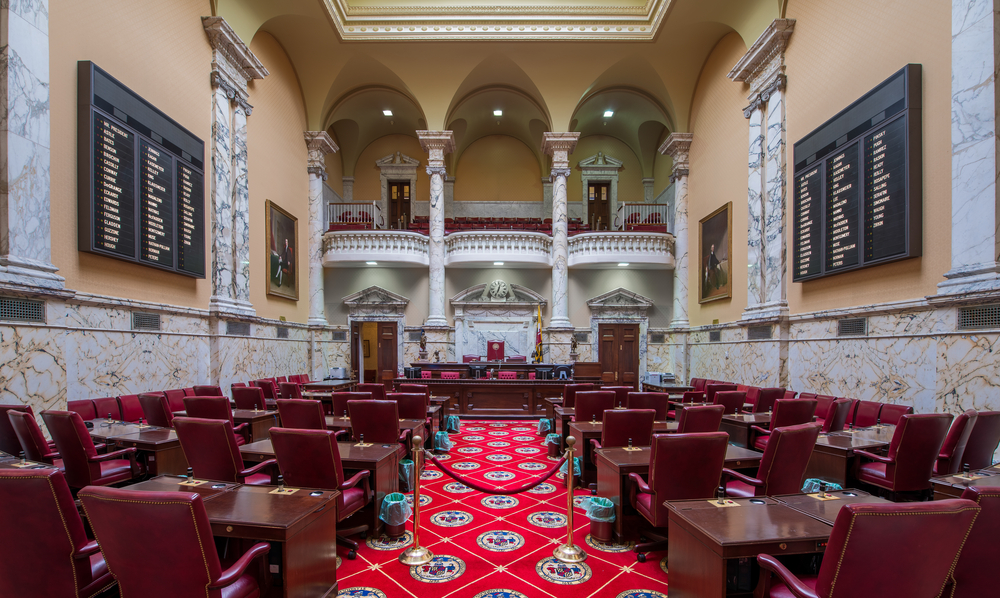
The Maryland Senate voted unanimously on Thursday to pass the Justice Reinvestment Act, a bill designed to overhaul the state’s criminal justice system.
Despite the 46-0 vote, many lawmakers on both sides of the political spectrum expressed concerns over the bill—some said it goes too far, while for others, it doesn’t go far enough. The Justice Reinvestment Act seeks to revise policy on drug possession and mandatory sentencing, in an attempt to reduce both the Maryland prison population and increase savings.
Under SB 1005, people convicted of drug possession would be directed to treatment rather than prison; minimum sentencing for drug possession would be eliminated, along with disparities in sentencing for possession of crack and powder cocaine (which has historically affected Black Americans disproportionately); drug offenders would be able to appeal their mandatory minimum sentences; and it would become easier to expunge a drug possession conviction.
“Ninety percent of this bill is great,” said Senate President Thomas V. Mike Miller, who also said that with a few more tweaks, it would “make all of our constituent groups happy.” But fellow Democrat, Sen. Jim Brochin of Baltimore Country, said that he had “incredible heartburn” over part of the bill that would allow more people to clear convictions from their records, according to the Baltimore Sun. But overall, he said the bill is going in the right direction.
The most significant concern for many legislators, as well as criminal justice reform advocates, was the actual amount of money the bill would save the state. The Pew Charitable Trusts, which worked with lawmakers on the measure, said that after recent changes made to the bill in the Senate, it would actually save about $34 million from an initially projected $250 million, in a period of 10 years.
All parties are hoping that these issues will be further clarified once the bill moves to the House of Delegates this week. But despite the differing opinions—and all of the back and forth before reaching an agreement—many senators, as well as Governor Larry Hogan, were satisfied that the Senate was able to move the bill forward.
“It was a compromise bill that really brought together all the stakeholders from every aspect of this,” said Hogan on Thursday. “It accomplishes a lot of things for a lot of people … It’s something that we’ve worked on in a bipartisan fashion, and we’ve found common ground with liberal Democrats and conservative Republicans.”
The bill’s passage marks the first step toward enacting the largest reform to the criminal justice system in Maryland’s history. As Sen. Jamie Raskin of Montgomery County noted, “It doesn’t begin with this bill and it doesn’t end with this bill.”
